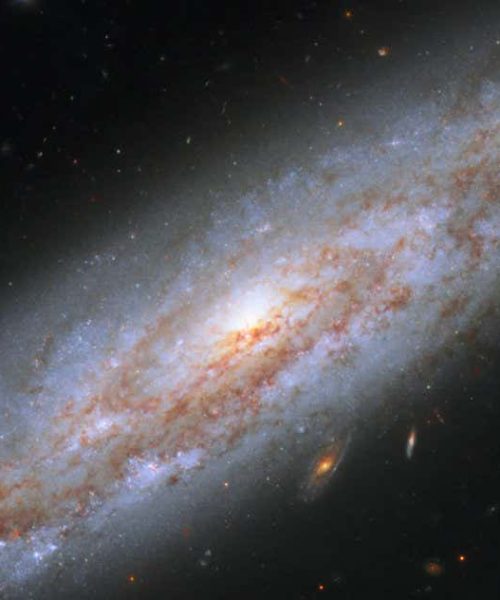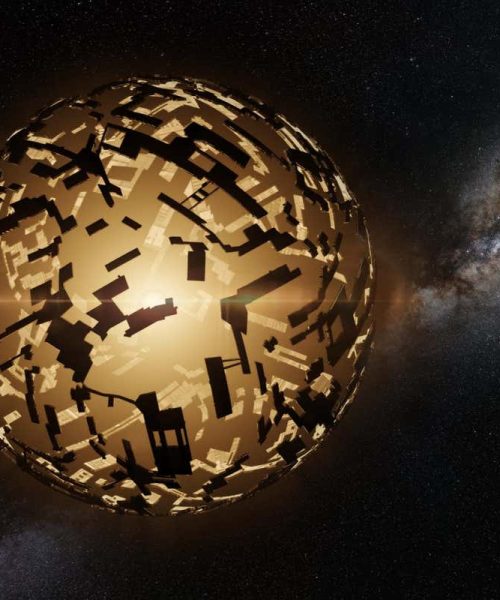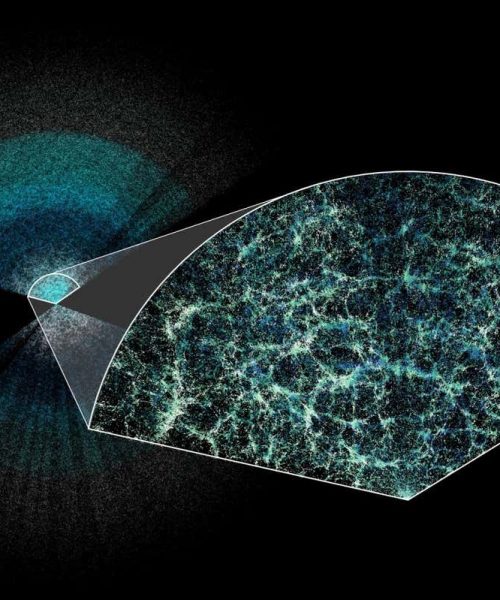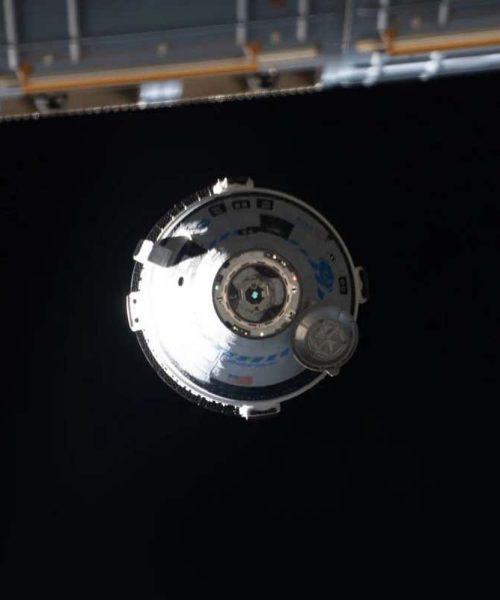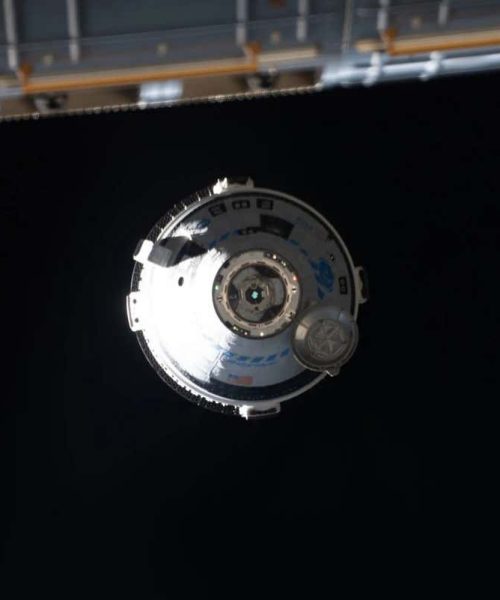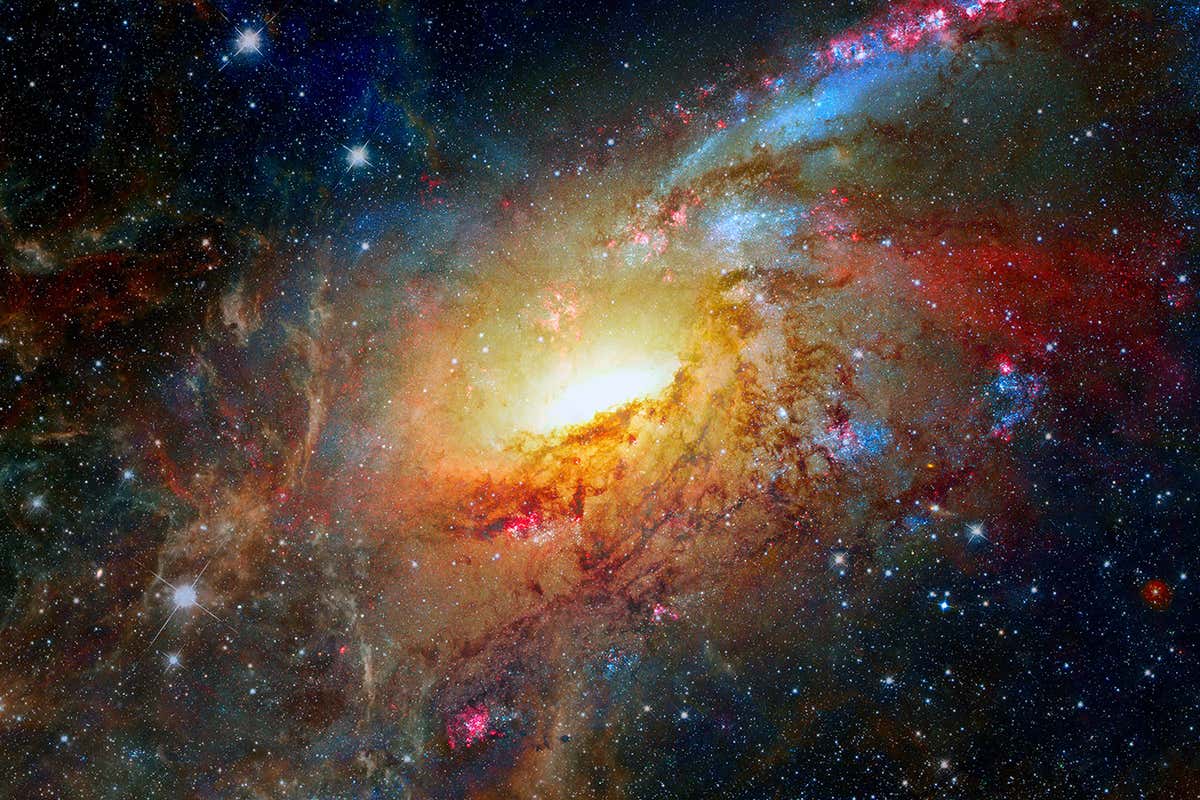
A dying star explodes in a luminous supernova.
Shutterstock / NASA images
The universe is full of wild and wonderful mysteries, scenes of mind-blowing beauty and incredibly powerful forces. It is also home to New Scientist’s Chelsea Whyte and Leah Crane, who present Dead Planets Society. In this new podcast, our two intrepid hosts imagine what it might be like if they were given cosmic powers to rearrange the universe.
Along with expert astronomers, physicists and planetary scientists, they explore everything from relatively benign scenarios – Could we make Pluto a planet again? Is it possible to turn Venus into a habitable planet for humans? – to the downright destructive. Subscribe to New Scientist Weekly for access to all of our podcasts, including Dead Planets Society, and learn what might happen if we punched a hole in a planet, chiselled Earth into a cube, or put out the sun.
While you’re waiting for new episodes to drop, check out seven of our most popular in-depth articles that explore the solar system and beyond. To celebrate the launch of Dead Planets Society, we are making these premium articles free to read until 25 July. Unlock your access by clicking through and registering as a newscientist.com user.
Advertisement
A cosmic catalogue
What, exactly, is out there? Explore our inventory of the universe, a concise guide to everything we know of in the cosmos, from stars and planets to galaxy clusters and dark energy. Powerful telescopes have given us a deep look at a menagerie of moons and black holes, super-Earths and hot Jupiters – and provided a deeper understanding of how the universe works.
Saving Earth from an asteroid
What would we do if scientists detected an asteroid the size of a large building speeding directly towards Earth? Figuring out which cities to evacuate, who to notify and how to keep the human race going is the goal of planetary defence projects. In this article, follow along with a group of scientists who met in Washington DC to hash out how we might respond to a cosmic worst-case scenario.
Black hole choose-your-own-adventure
Imagine yourself being pulled into one of the universe’s common giants – a black hole. A looming darkness washes over your eyes and your body is stretched into ribbons, “spaghettified” as scientists call it. But then what? In this choose-your-own-adventure story, you decide. Will you be devoured and evaporate into Hawking radiation? Would your atoms get crushed down and spewed back out in a white hole? Or could you end up in another universe altogether?
Postcards to the stars
Since commercial radio began in the 1920s, we have been inadvertently broadcasting our presence to the stars. About half a century later, scientists began deliberately sending messages into the universe with the hope that there might be some intelligent life out there to receive them. So what kind of picture do aliens have of us? If they have ears or eyes, they’ve heard Morse code and seen The Simpsons. They have also received a missive with binary code depicting the double helix of DNA and and maybe even hummed along to Across the Universe by the Beatles. More recently, researchers have been working on an updated message to send into the cosmos – but some say there is potential danger in revealing too much about Earth.
How to get to Mars
Earth and Mars are worlds apart. The Red Planet is a frigid wasteland with lower pressure and gravity than our home planet. But that isn’t the only challenge for any humans hoping to set up house there. Just getting to Mars is an endeavour that we can only confidently set out on after we have answered some huge questions: how do we build a big enough rocket for the journey, can it carry all the food and spare parts we would need to make the months-long trip, and who do we send as the first humans to set foot on another planet? And the biggest question of all: can we bring them home?
Black holes from the dawn of time
As the early universe rapidly expanded, space-time spread out faster than the speed of light. Out of this chaos arose primordial black holes. Or did they? These ancient black holes have been theorised for decades, and some scientists think we may have already spotted them – which would be a monumental discovery. Not only would they be the first black holes ever to form, but the most interesting ones in the cosmos. Read more to learn what they could tell us about dark matter, the accelerating expansion of the universe and the forces that hold together everything that exists.
Making a moon base
There has been renewed interest in the moon for years, with plans for landers and rovers coming out of China, Russia, Japan, India, Europe and private space companies. But NASA doesn’t just want to go visit – the US space agency wants to stay. It has plans to gather samples of moon ice and explore outside the landing areas of the Apollo missions from decades ago. But first, the astronauts it sends will have to overcome the challenges of space radiation and dangerous moon dust to build and power a moon base.
Topics:
